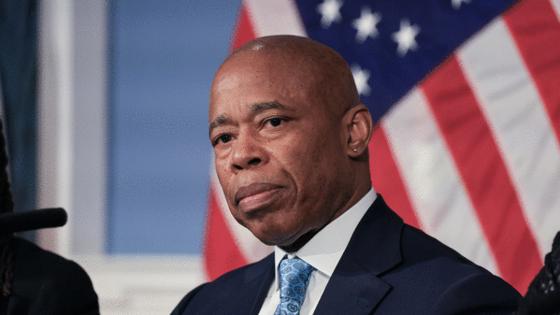Key report on mayoral control of NYC public schools finds parents, teachers feel shut out
Published in News & Features
NEW YORK — New York City parents and teachers feel shut out of key decisions about children’s education under the current system of mayoral control, according to a pivotal state Education Department report released Tuesday.
The 281-page study, watched closely amid a debate in Albany over extending Mayor Eric Adams’ control of the public schools, has the potential to drive changes to school governance in the nation’s largest school system. Recommendations from the public include to establish a commission to consider reforms that increase representation and input.
The report drew immediate condemnation from Adams who, not having seen the analysis, intimated that it could be politically motivated. At a press conference before its official release, he suggested the study reflected the opinions of those he called “professional” parents, and not “everyday New Yorkers.”
“I’m concerned, is this more political?” Adams told reporters Tuesday morning at City Hall. “Or is it about the way we have done it, and what Chancellor [David] Banks has done.”
During the last renewal in 2022, lawmakers asked for the report on mayoral control, expected to inform their decisions of whether to extend it. If not, mayoral control would expire at the end of June.
“The report we’re issuing today is a thorough, research-based presentation of school governance models in New York City and elsewhere,” state Education Department Commissioner Betty Rosa said in a statement, “that meets the law’s requirements with fidelity.”
The study considered public testimony at five hearings in each borough and written comment, alongside the city’s history of school governance and comparisons to similar school systems.
It found that while mayoral control of the public schools can boost efficiency and resources, the public expressed concerns about a lack of checks and balances, and transparency with its current iteration. The law has been amended eight times since mayoral control was implemented two decades ago to address similar concerns.
The majority of feedback called for varying degrees of reform — ranging from revisions to phasing out mayoral control — though some said the existing system is effective, the report found. Few people called for a return to the structure of local school boards, which faced criticism over poor school performance and corruption.
Centralized decision-making can also result in a problematic “one-size-fits-all” approach, parents and teachers said, and a lack of continuity in education policies and programs when a new mayor is elected.
While mayoral control was popularized in large cities during the mid-1990s, researchers found some districts have soured on the model, including in Detroit, Chicago and Boston. Compared to other school systems, New York’s approach imbues its mayor with the most power, closely followed by Yonkers. Other cities, including Philadelphia, Boston and D.C., require Council or “nominating” committee input on key education appointments.
State education officials, required to work with a local higher education institution, tapped the City University of New York School of Law professor Natalie Gomez-Velez, a former state Regent and Bronx representative on the city’s Panel for Educational Policy. They also enlisted independent researchers at WestEd, who did the feedback analysis.
Adams took issue with CUNY Law’s involvement and criticized the review of public comment.
“The professional parents knew about the hearings ahead of time,” said Adams. “They were able to fill the room. You won’t hear from everyday New Yorkers.”
“This is what we’re up against. They’re not looking at the facts that Chancellor Banks came into a school system, we are outpacing the state in reading and writing. We have changed the food that our students are eating. We have changed the cafeterias. Graduation rates up. I mean, all of these successes — and they write a report by the school that booed me and turned their backs on me.”
In response to the mayor questioning the study’s validity, state Education Department spokesman said “the report speaks for itself.” State education committee chairs John Liu (D-Queens), who oversees the city, and Shelley Mayer (D-Westchester) released a joint statement in the afternoon calling the review “objective and authoritative.”
Gov. Hochul, a Democrat, has called for a four-year extension, but last month the state Senate and Assembly indicated little appetite for renewing mayoral control as part of the now-late budget. That would still leave the option open for later in this year’s session.
The city’s teachers union and some parent advocates are pushing for checks on the mayor’s power to dictate school programs and procedures.
Currently, the city’s Panel for Educational Policy is mostly appointed by Adams and pushes through the administration’s directives on contracts, school mergers and closures. Under the United Federation of Teachers’ plan, the chancellor would have to convince the majority of the PEP to vote in his favor.
On the other side, a pro-charter school group, StudentsFirstNY, announced a seven-figure ad campaign last week to push for a four-year extension, backed by local power-players including the Partnership for New York City, Association for a Better New York, REBNY and Robin Hood.
After the report was released, city education officials called the study “disappointing” and a “missed opportunity” to study other school governance models compared to mayoral control. The analysis found “no conclusive relationship” between school governance structures and student achievement.
“No governance model is perfect. No governance model is without flaws — but clearly, clearly what you see [with mayoral control] is sustained improvement,” said First Deputy Chancellor Dan Weisberg.
©2024 New York Daily News. Visit at nydailynews.com. Distributed by Tribune Content Agency, LLC.







Comments